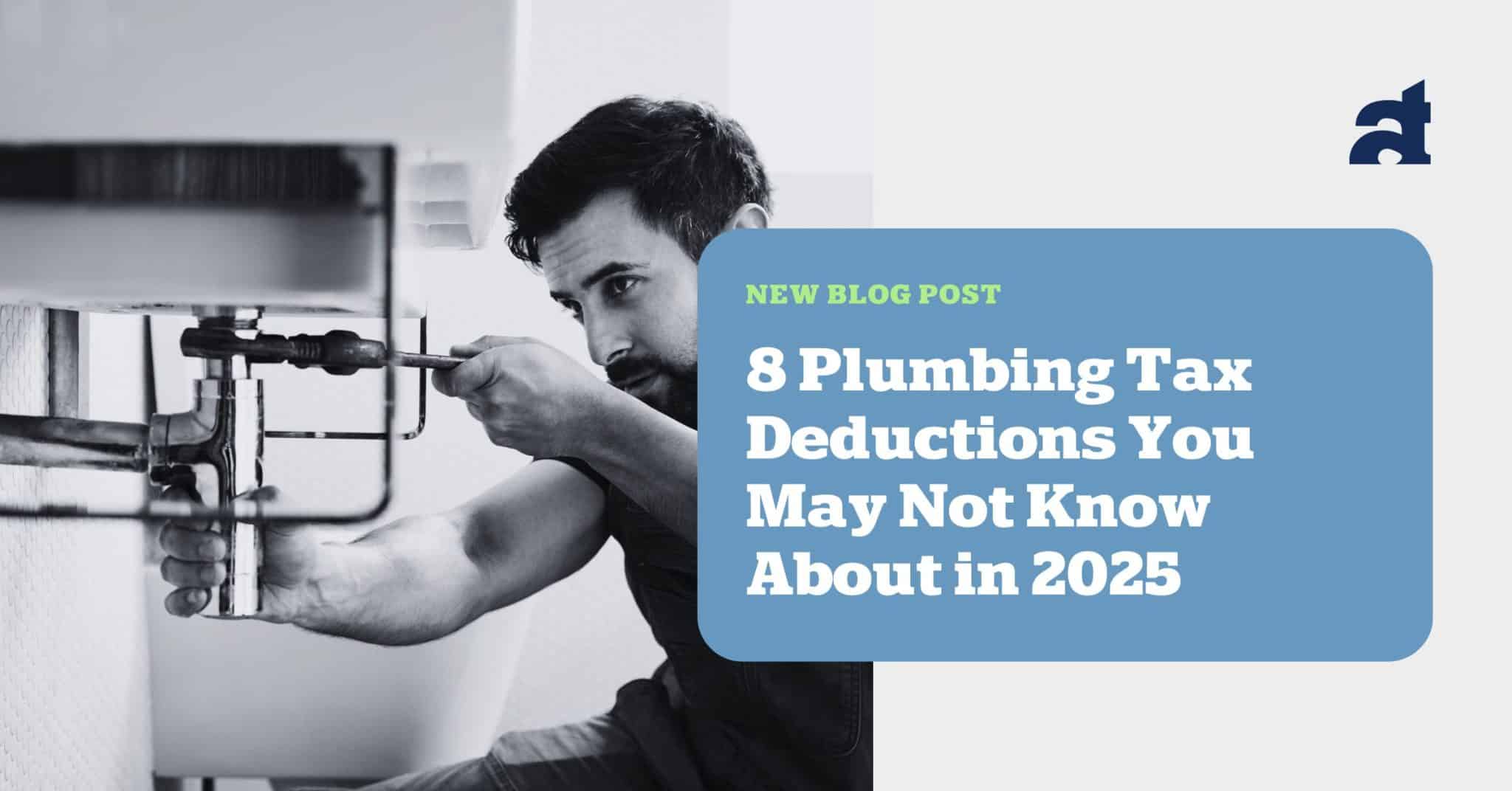
Taxes can be tricky, especially when you’re not familiar with all of the deductions you’re entitled to. Overlooking eligible write-offs is like handing the IRS a tip they didn’t ask for. Instead of trimming your tax bill, you could end up paying more than you owe—and let’s face it, they’re not about to remind you.
That’s why it’s crucial to stay sharp and claim every deduction your plumbing business is eligible for. Missing out means leaving hard-earned money on the table.
To help you stay ahead, here are eight plumbing tax deductions that often go unnoticed but could save your business thousands of dollars this year.
When you buy uniforms or protective clothing for plumbing work, those expenses can be deducted from your taxes. This includes branded shirts, safety boots, gloves, and any gear required to meet job or safety standards. These items must be specific to your trade and unsuitable for everyday wear—no double-dipping with regular wardrobe items.
To claim this deduction, you’ll need receipts or invoices for every purchase, so keep them organized throughout the year. While there’s no specific limit, the items must directly support your business needs. Include these costs under “work-related clothing” when filing your taxes, and if you’re unsure, a tax professional for plumbers can guide you through the process.
Tools and equipment purchased for plumbing are fully deductible, making them a smart investment. Items like pipe wrenches, augers, and leak detectors can be deducted outright, as long as you record them as a business expense as well. Remember that you cannot claim a tax deduction if it’s not a recorded expense in your books. To qualify, ensure the tools are exclusively for business use.
The IRS allows you to deduct mileage costs to ease the tax burden, especially since fuel prices are rising. The standard mileage rate this year is 70 cents per mile, which offers a higher deduction compared to previous years.
You can claim this deduction by directly computing the mileage cost of a trip. It’s best if you use a mileage tracker for accurate tracking. Make sure to also record the date, destination, and purpose of your trip. Personal trips aren’t qualified for mileage deductions so don’t include them in your tax return.
Aside from mileage, you can opt to deduct actual vehicle expenses if they surpass the mileage rate. The extra vehicle expense deduction is a great tax relief, especially if you recently spent money on a huge repair.
Keep receipts for all vehicle-related expenses throughout the year and maintain clear records separating business and personal use. Consult with a plumbing tax professional to determine whether the actual expense method or the mileage deduction works best for your business.
Renewing your plumbing license or maintaining certifications isn’t just essential, but also tax-deductible, as these are necessary for your trade. The same goes for membership fees to professional organizations that keep you connected with the industry.
Just keep proof of payment for every fee you claim and make sure you record it in your books as an expense. There’s no cap on how much you can deduct, but the expense must be directly tied to your work. During tax time, make sure this deduction is reflected in your Schedule C.
From basic stationery to software that streamlines your scheduling or invoicing, office supplies are often overlooked deductions. Anything you use to manage your business operations qualifies, as long as it’s directly tied to your work. If you run a home office, you can also claim supplies used in that space.
Save receipts for items like pens, notebooks, ink cartridges, or even file folders. There’s no specific limit, but these purchases must be solely for business use. When filing, list them under “office expenses” and keep your records clear to make things easy during an audit.
Big-ticket purchases like vehicles, heavy-duty tools, or plumbing equipment can strain your cash flow, but depreciation helps spread the cost over time. Section 179 allows you to deduct the full purchase price of qualifying equipment in the year it’s placed in service, making it perfect for offsetting large upfront costs.
Bonus depreciation goes further, letting you deduct additional amounts beyond Section 179, including used equipment. Assets purchased after September 27, 2017, were eligible for a 100% deduction, though this benefit is phasing out. Depreciation is one deduction that can be confusing to navigate, so it’s important to either stay updated on IRS rules, or consult a tax professional to choose the best strategy for your business.
Liability insurance, workers’ compensation, and even vehicle insurance for business purposes are deductible expenses. Protecting your business from risks isn’t just smart—it also comes with a financial silver lining during tax season.
Maintain detailed records of premiums paid throughout the year to ensure accurate reporting. You can claim 100% of premiums related to your plumbing business without limits. If you’re uncertain about what qualifies, a tax preparer can help you nail down the specifics.
While a checklist of tax deductions for your plumbing business is always helpful, there’s no simpler way to make sure you’re covering all of your bases than consulting a tax expert. Specifically one that is well-versed in your industry.
If relying on generic tax software like TurboTax and H&R Block, there’s a good chance that you’ll end up essentially overpaying the IRS—money that could’ve stayed in your business.
Here at Adam Traywick, CPA, we specialize in helping plumbers keep as much money as legally possible in their pockets. With our expertise, we’ll ensure your tax bill reflects only what you truly owe.
In search of a better plumbing accountant? We’re always here to help.
Simply head over to our Getting Started page and tell us a few details. We’ll be in touch within 1 business day.
Until next time!